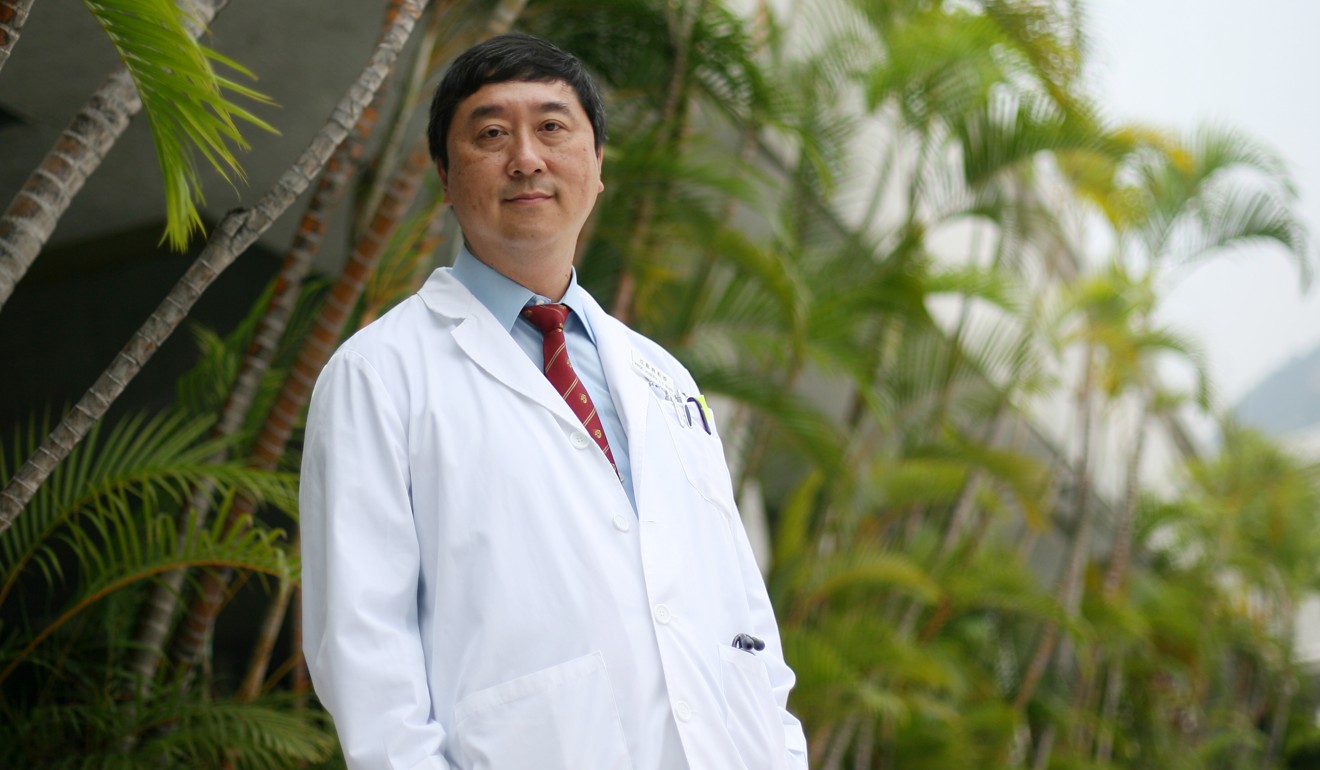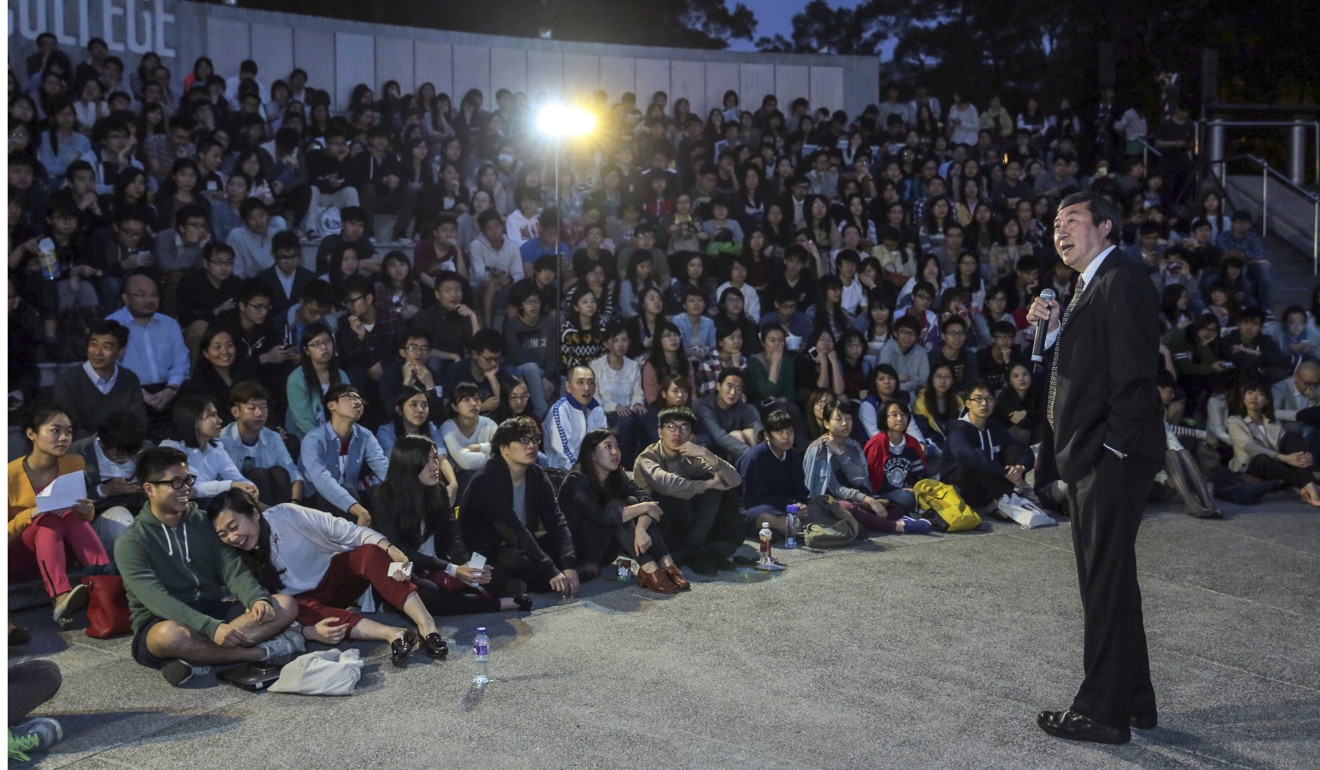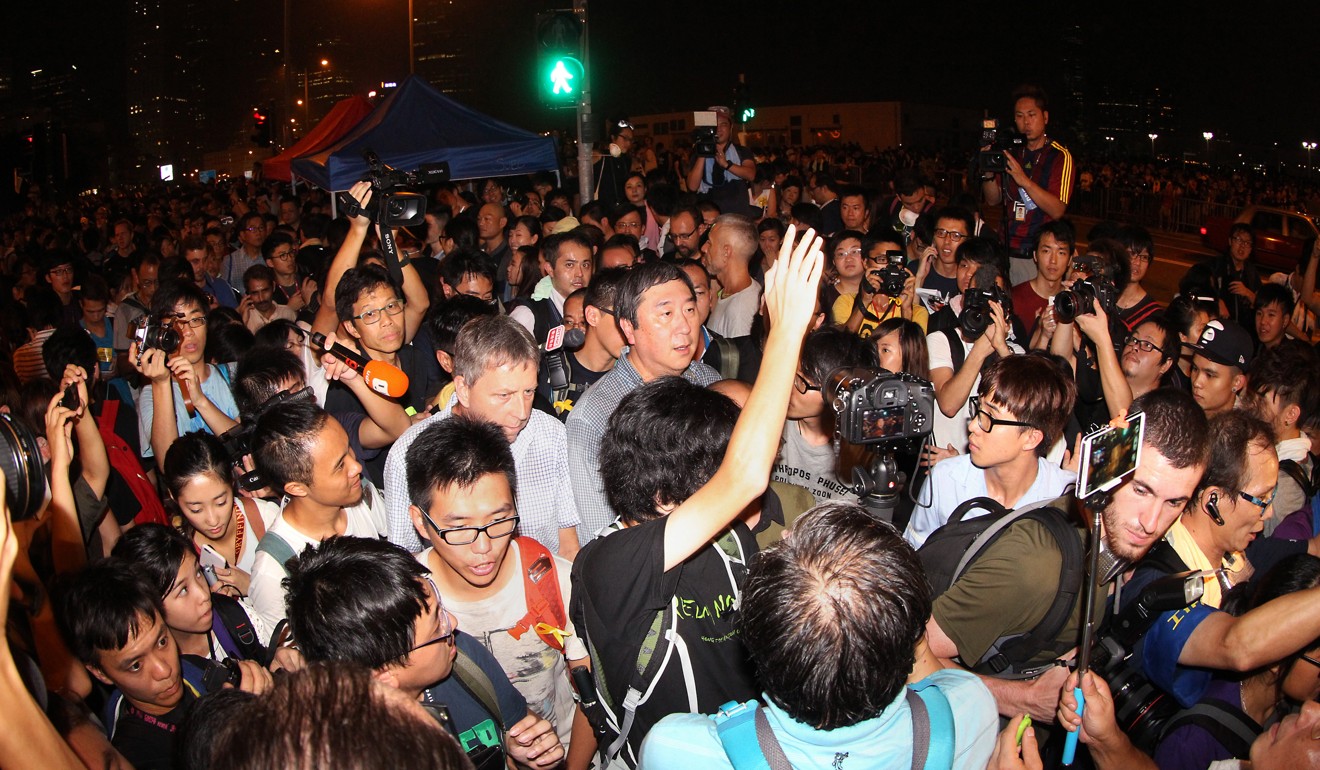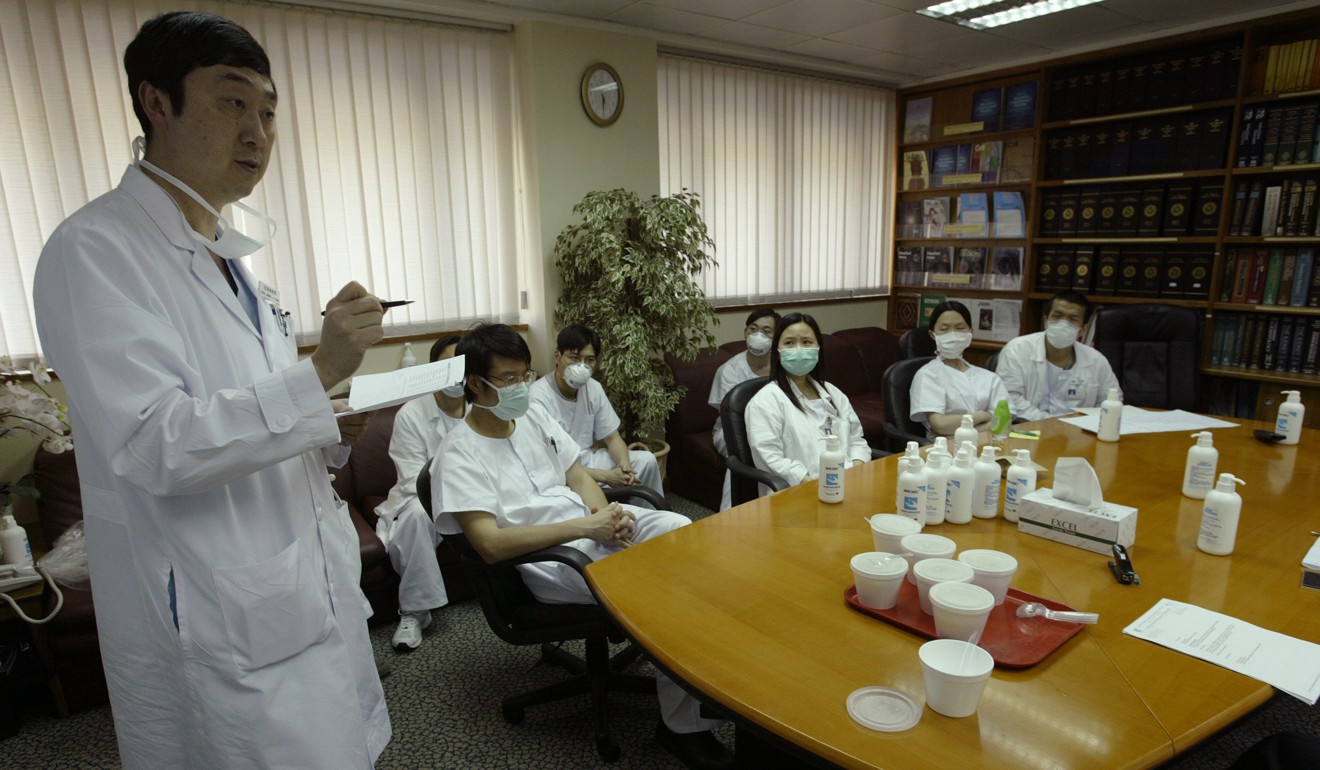
Outgoing Chinese University chief Joseph Sung, hailed as ‘Asian hero’ in 2003 Sars fight, warns of dangers of a polarised Hong Kong
Vice-chancellor says university must not descend into political infighting
Outgoing Chinese University of Hong Kong chief Joseph Sung Jao-yiu on Friday issued a stark warning about the dangers of a polarised society and called on students to tolerate opposing views as he prepared to step down from his post.
Hong Kong’s young people should understand the issues facing the city from different perspectives and respect other viewpoints, the vice-chancellor said in parting comments.
Sung, who took the helm of the university in July 2010, said Hong Kong had become increasingly polarised during his term, and middle-of-the-road voices were being spurned.
“Academic freedom does not mean we can do whatever we like, affecting other people’s freedoms or dignity,” said Sung, whose term ends on Sunday.

“So when we speak about freedom of speech or academic freedom, I hope students, teachers and others will respect and tolerate one another.
“A university should not become a place for political infighting. I hope it will remain a place for academia and research.”
Sung, who has enjoyed a long career as a researcher in gastroenterology and hepatology, is best known outside Hong Kong for his work fighting the city’s deadly outbreak of severe acute respiratory syndrome in 2003, for which he was labelled an “Asian hero” by Time magazine.

His comments on Friday follow a run of accusations that academic freedom is being undermined at universities in the city. Such concerns began to surface in 2015 when the University of Hong Kong’s governing body rejected a recommendation to promote a liberal law professor known for his pro-democracy views, and fears have been further fuelled by controversy over students advocating Hong Kong independence on campuses. A joint statement signed by the heads of the city’s 10 public universities opposing such calls sparked ire among students in September. Chinese University was among several institutions that insisted banners bearing the words “Hong Kong independence” be taken down.
Student union threatens ‘escalating action’ in Chinese University banner row on Hong Kong independence
Sung’s popularity suffered from these episodes, with many students, who had at first praised him as liberal and tolerant, calling him conservative and accusing him of failing to protect academic freedom.
“Everything I have done since the first day of my term, I did it out of my conscience, taking into consideration what would benefit the university,” Sung said. “I have not changed my stance or way of doing things, but society has changed.”

Sung insisted he could not see “any external forces infringing upon academic freedom”.
Some issues, he said, such as obeying the law and Hong Kong being part of China, were indisputable. Arguing over these would only damage teaching and learning.
“It is not that you are not allowed to talk about these things. It is not that we are stifling your voice,” Sung said. “We just don’t want the university to become a place where people fight.”
More clashes at Chinese University over independence posters
He said he understood young people were angry about social problems such as high property prices and fewer opportunities, but they should not face these issues with anger but instead seek solutions.
Young people should look at the issues from different perspectives as well as seek opportunities overseas, he added.

Sung found favour with many students in October 2014 when he and HKU vice-chancellor Peter Mathieson visited young protesters occupying a major road in the downtown district of Admiralty during the city’s 79-day Occupy democracy sit-ins.
Sung said he visited the protesters to urge them to calm down, in hope of preventing conflict, and did not want to send any political message.
Protest talks thrust popular scholar Joseph Sung into political limelight
He called that time “stormy days” and said he had learned from the experience.
Sung said he would continue to work at Chinese University’s teaching hospital, Prince of Wales Hospital in Sha Tin, after he stepped down, and would concentrate on teaching and research.
Biotechnology scientist Professor Rocky Tuan Sung-chi will take over from Sung.

